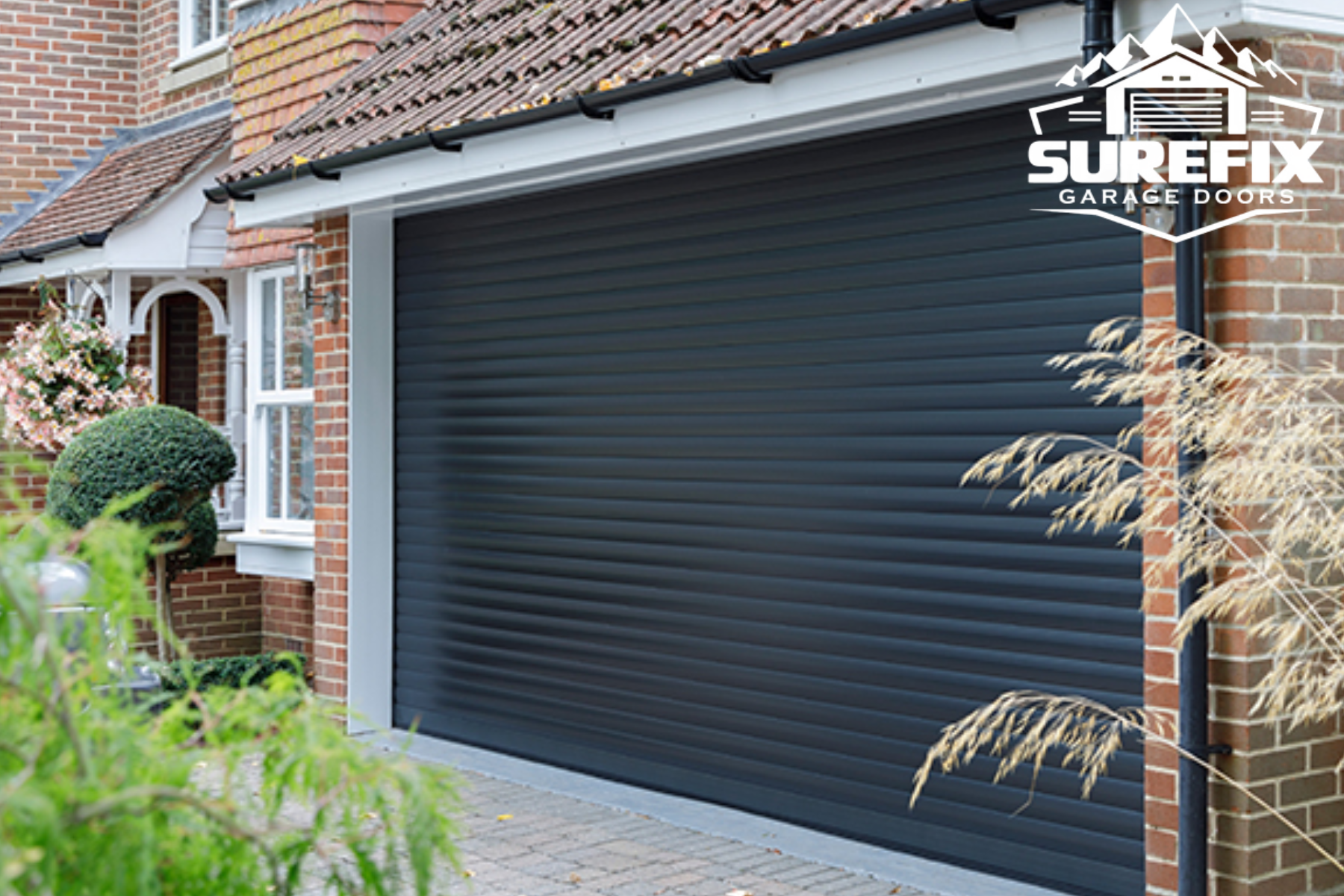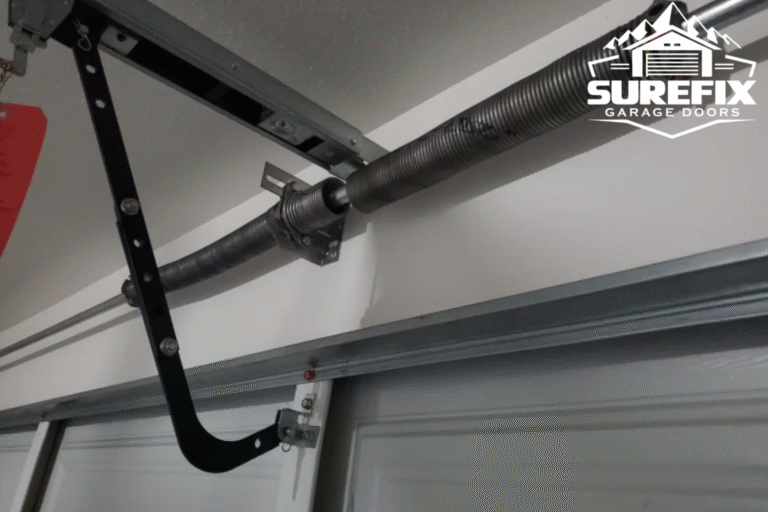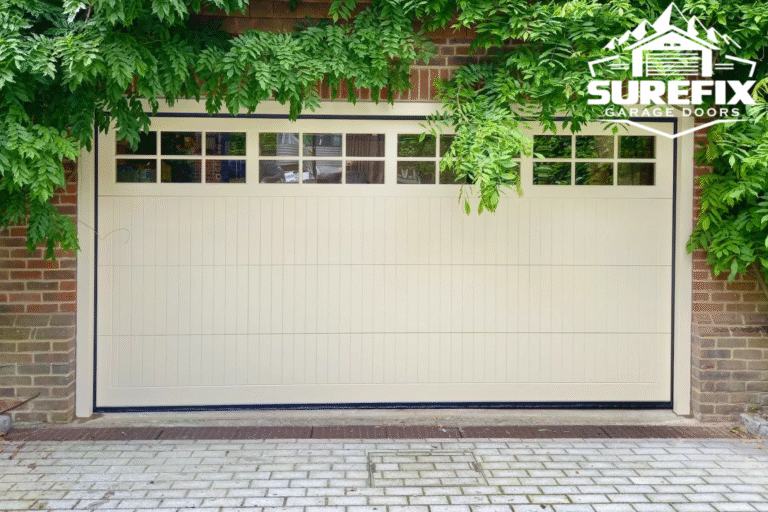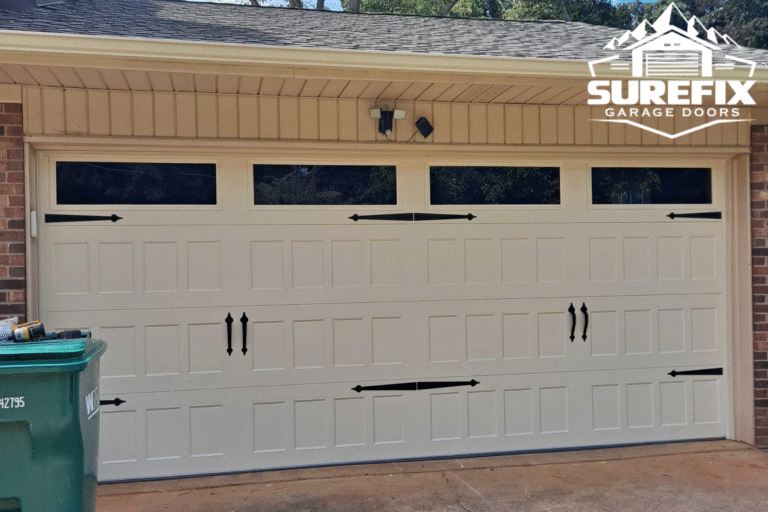Your garage door springs play a crucial role in the smooth operation of your garage door system. These springs help lift and lower the door, making them essential for its function. Over time, however, these springs can wear out due to regular use, weather conditions, and age. Knowing when it’s time to replace them can save you money and prevent further damage to your garage door system.
If you’re unsure about the condition of your garage door springs, here’s a comprehensive guide to help you identify when it’s time for a garage door replacement Utah County.
Understanding Garage Door Springs
Before diving into the signs of worn-out springs, it’s essential to understand the types of garage door springs. There are two primary types:
- Torsion Springs: These are located above the garage door and wind and unwind to lift and lower the door. Torsion springs are the most commonly used type for residential garage doors.
- Extension Springs: These are found on both sides of the door, stretching and contracting to support the door’s movement. Extension springs are often used in smaller or older garage doors.
Both types of springs are under extreme tension, and when they fail, it can make your garage door difficult or impossible to operate. Understanding the signs of wear on these springs is crucial to maintaining a functioning garage door.
Signs You Need to Replace Your Garage Door Springs
1. The Garage Door Won’t Open or Close Properly
If your garage door struggles to open or close, or you find that it opens halfway and then stops, it may indicate a problem with the springs. This issue can occur if the springs are no longer strong enough to support the weight of the door. In some cases, the springs may have already snapped, preventing the door from moving at all.
If you hear a loud noise, such as a “bang” or “snap,” this is a clear indication that one or both of the springs have broken.
2. Visible Signs of Wear and Tear
Take a close look at the springs. Are there visible gaps or spaces between the coils of the spring? If so, this is a sign of wear and tear. A gap in a torsion spring can lead to a loss of tension, which will affect the door’s ability to open or close properly.
If your springs show signs of rust or corrosion, this can weaken the spring’s integrity. Rust and corrosion can erode the metal over time, making the spring more likely to snap.
3. The Garage Door Shakes or Jerks When Opening or Closing
If your garage door shakes or jerks while opening or closing, it could be a sign that the springs are unbalanced. Garage door springs are designed to work in unison to ensure the door opens and closes evenly. If one spring is weaker or has failed, it can cause the door to operate unevenly, leading to jerking movements.
A shaking or jerking door is not only an inconvenience but also a potential safety hazard. It’s important to address the issue promptly to avoid further damage.
4. Noisy Operation
While garage doors are generally not silent, a significant increase in noise during operation can be a red flag. If you notice a loud, high-pitched squeaking or screeching sound, it could be a sign that the springs are struggling to function properly. This noise is often a result of friction caused by worn-out springs or a lack of lubrication.
If the sound is coming from the springs themselves, it’s a good indication that they need to be replaced or repaired.
5. Uneven Door Height
If you notice that your garage door is uneven or slanted when it’s closed, this can be a result of broken or imbalanced springs. A balanced door should be evenly aligned with the frame when it’s in the closed position. If the springs are uneven, the door may lean to one side or fail to sit flush with the ground.
This issue can worsen over time, causing additional strain on the door opener and other components of the garage door system.
6. Old or Worn-Out Springs
Like any mechanical system, garage door springs have a limited lifespan. Over time, they lose their tension and will eventually fail. While the exact lifespan depends on usage and environmental factors, the average torsion spring lasts between 10,000 and 20,000 cycles. A cycle is defined as the opening and closing of the garage door. If your springs are old and have exceeded their expected lifespan, it’s best to replace them before they break unexpectedly.
7. The Door Falls Quickly When Closing
If your garage door drops quickly when closing, it could be due to a lack of tension in the springs. Springs provide the necessary force to keep the door in place, and if they’re worn out, the door may fall too quickly, which can cause damage or pose a safety risk.
If the door’s movement seems unregulated and jerky, or if it falls with a thud, it’s a clear sign that the springs need replacement.
What to Do If You Suspect Your Springs Are Faulty
If you notice any of these signs, it’s essential to act quickly. While it might be tempting to try to fix the problem yourself, working with garage door springs is dangerous due to the high tension they’re under. Even experienced professionals can be injured if they don’t take the proper precautions.
It’s always best to call a garage door professional to inspect and replace your springs. They have the expertise and equipment to handle the replacement process safely. If you’re looking for garage door service near me, reach out to a local professional who can provide the right solutions for your garage door needs.
Benefits of Replacing Garage Door Springs
Replacing your garage door springs offers several benefits:
- Improved Safety: Worn-out springs can cause your door to malfunction, leading to accidents. Replacing them ensures that your door operates safely.
- Better Functionality: New springs will restore smooth and quiet operation, ensuring your door works like new.
- Prevent Further Damage: A broken spring can cause other parts of the door mechanism, like the opener or tracks, to wear out prematurely. Replacing the springs can prevent these additional garage doors repair Utah County.
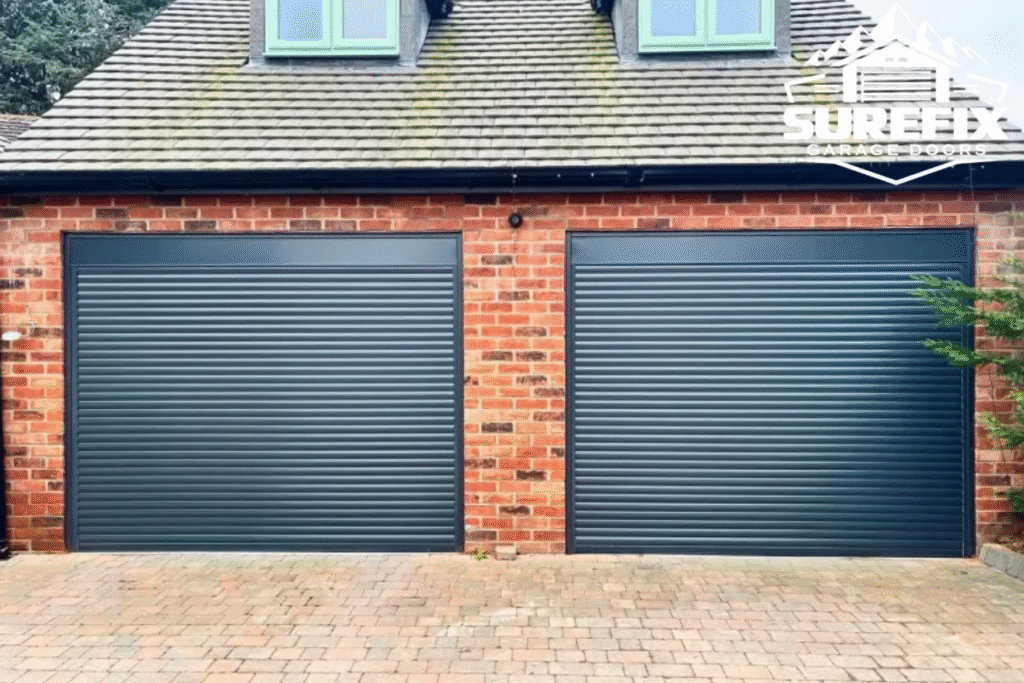
About Surefix Garage Doors
At Surefix Garage Doors, we are committed to providing high-quality garage door services, including garage door installation Utah County, repairs, and maintenance. Whether you need a quick fix for your garage door or are considering a full replacement, our experienced team is here to help. We serve residents and businesses in Utah County and the surrounding areas, offering reliable solutions tailored to your needs.

